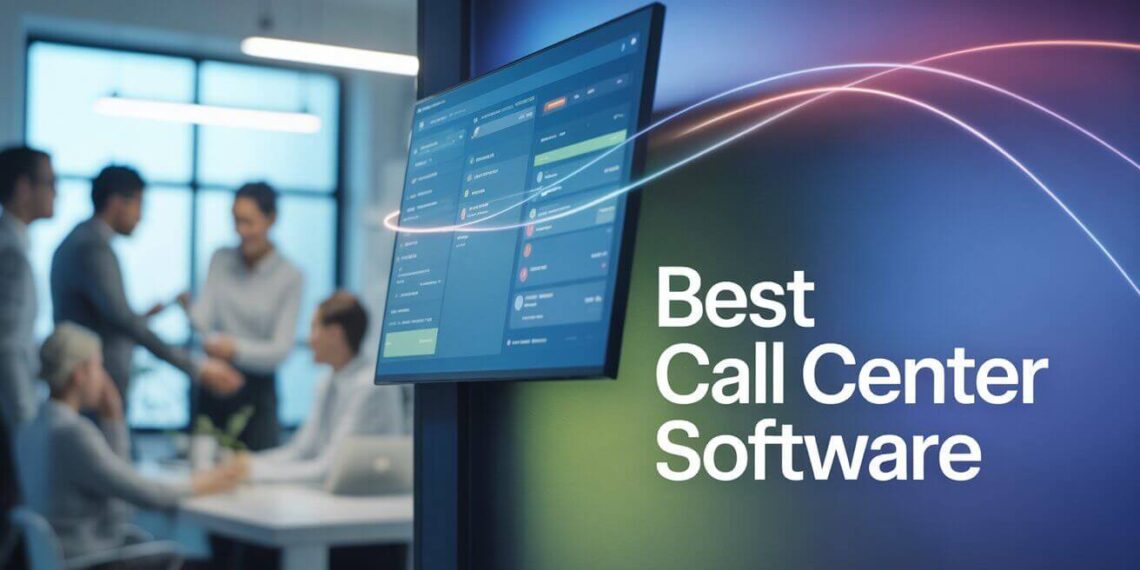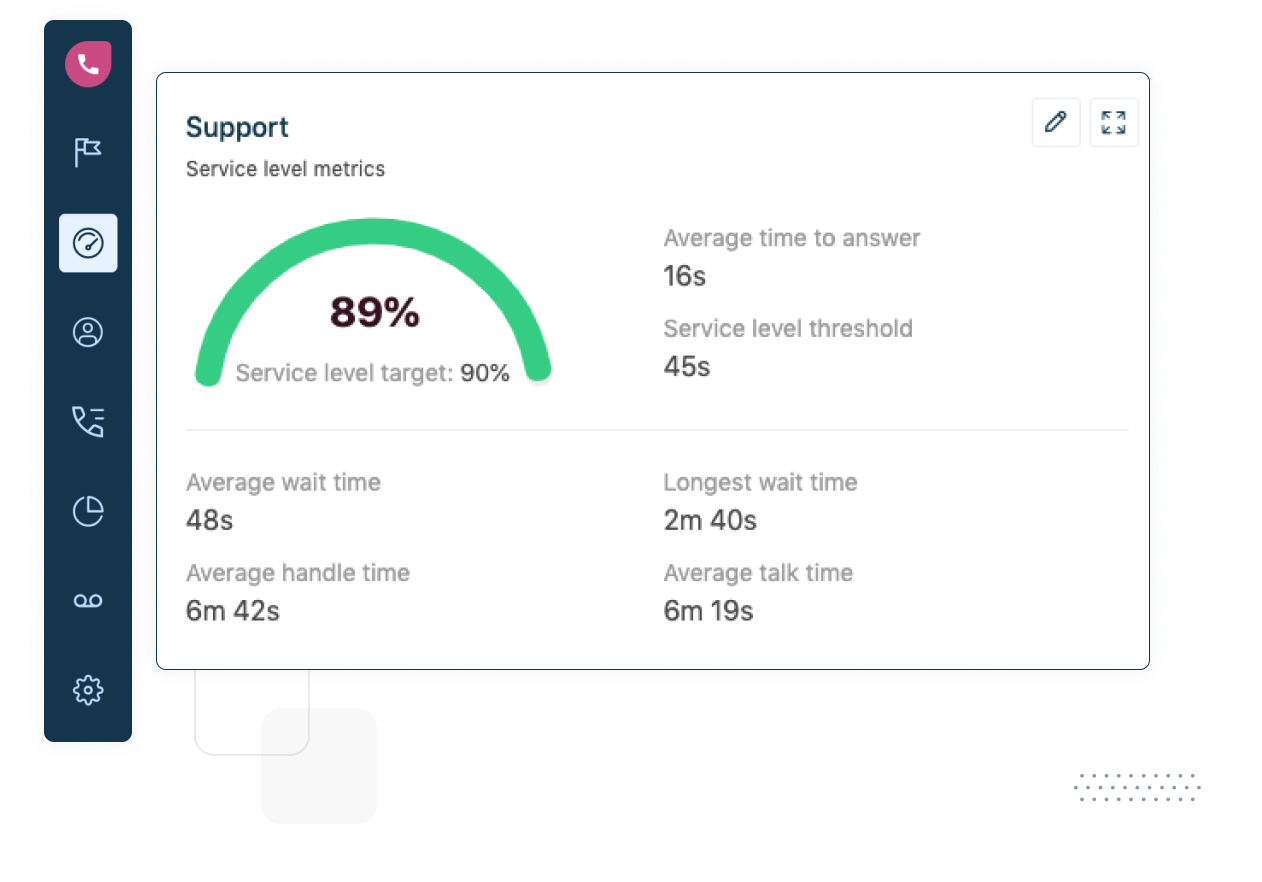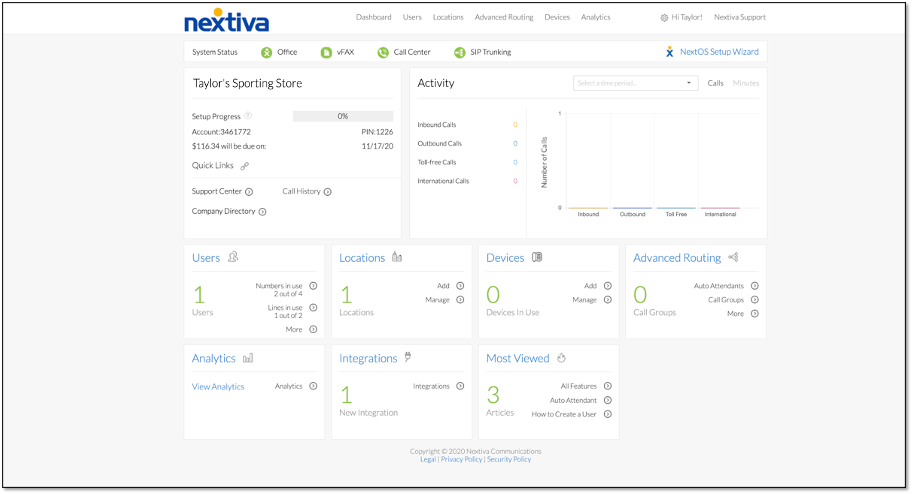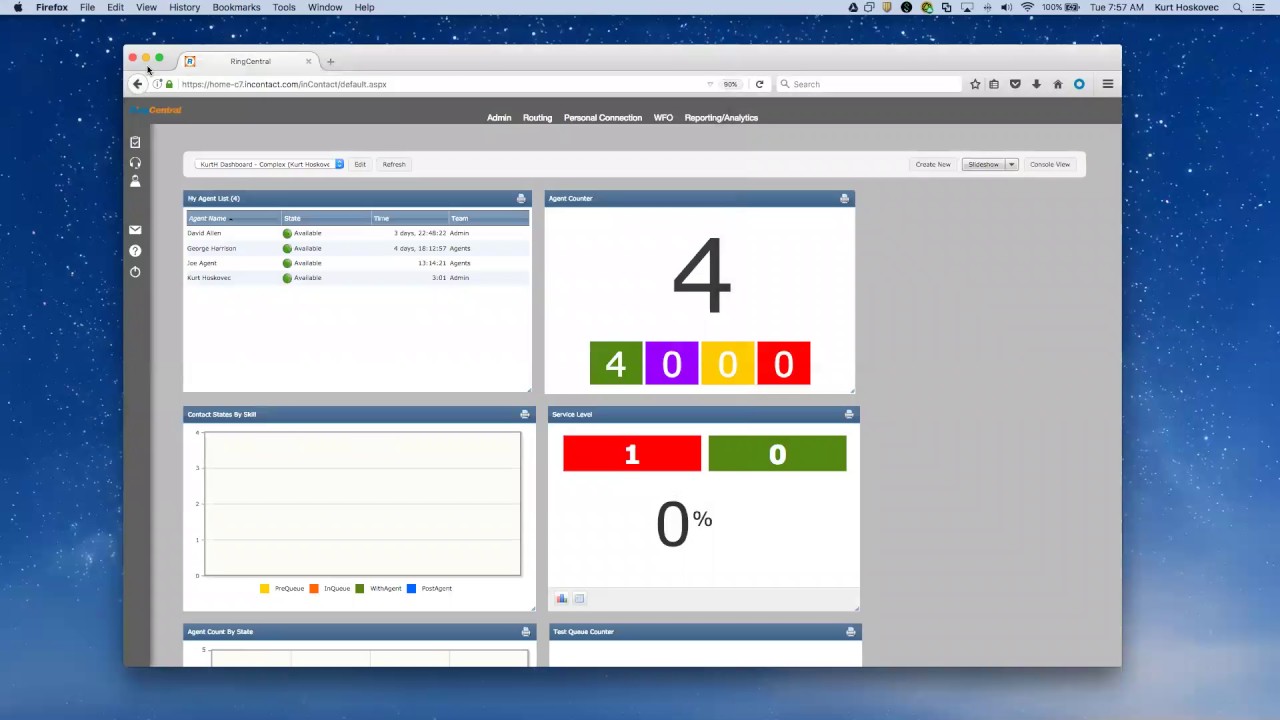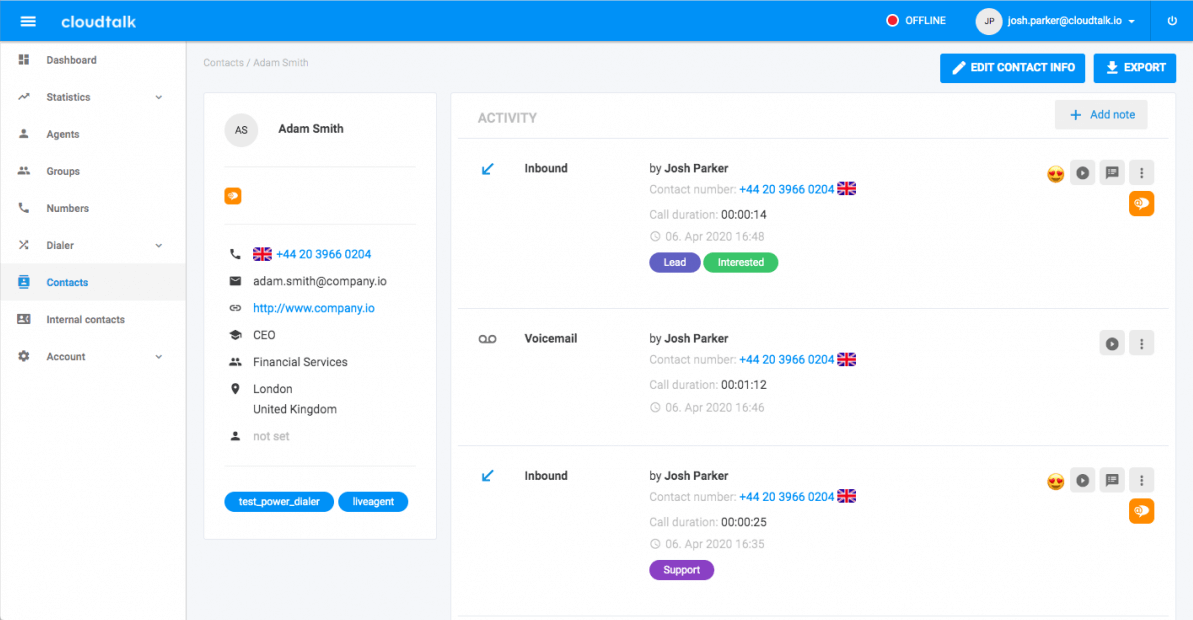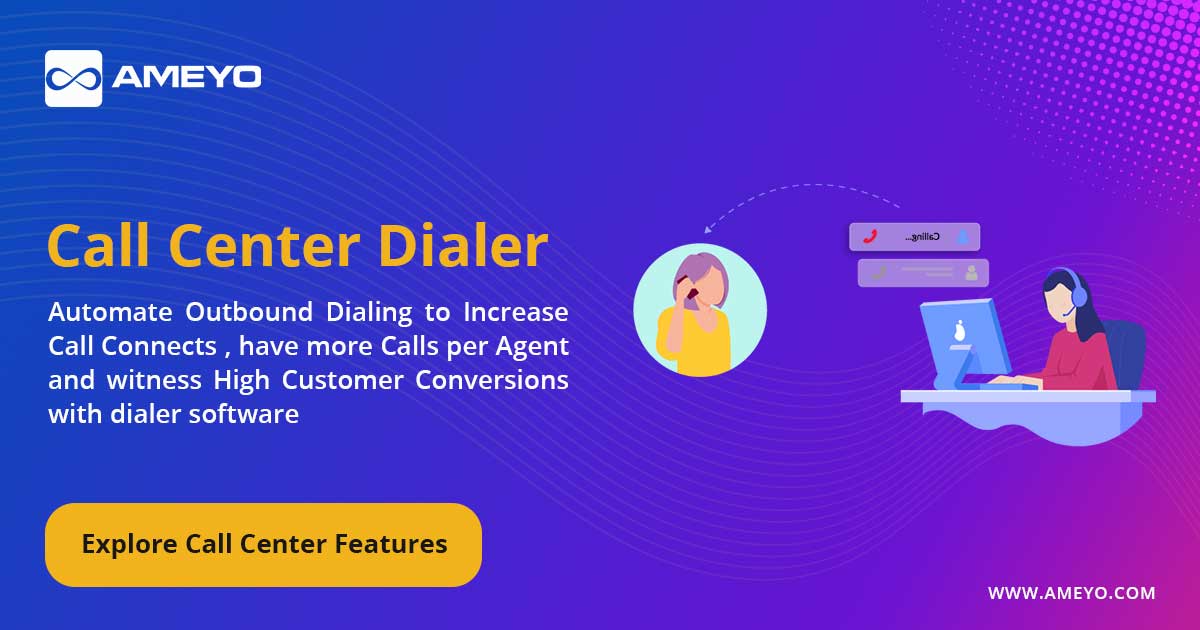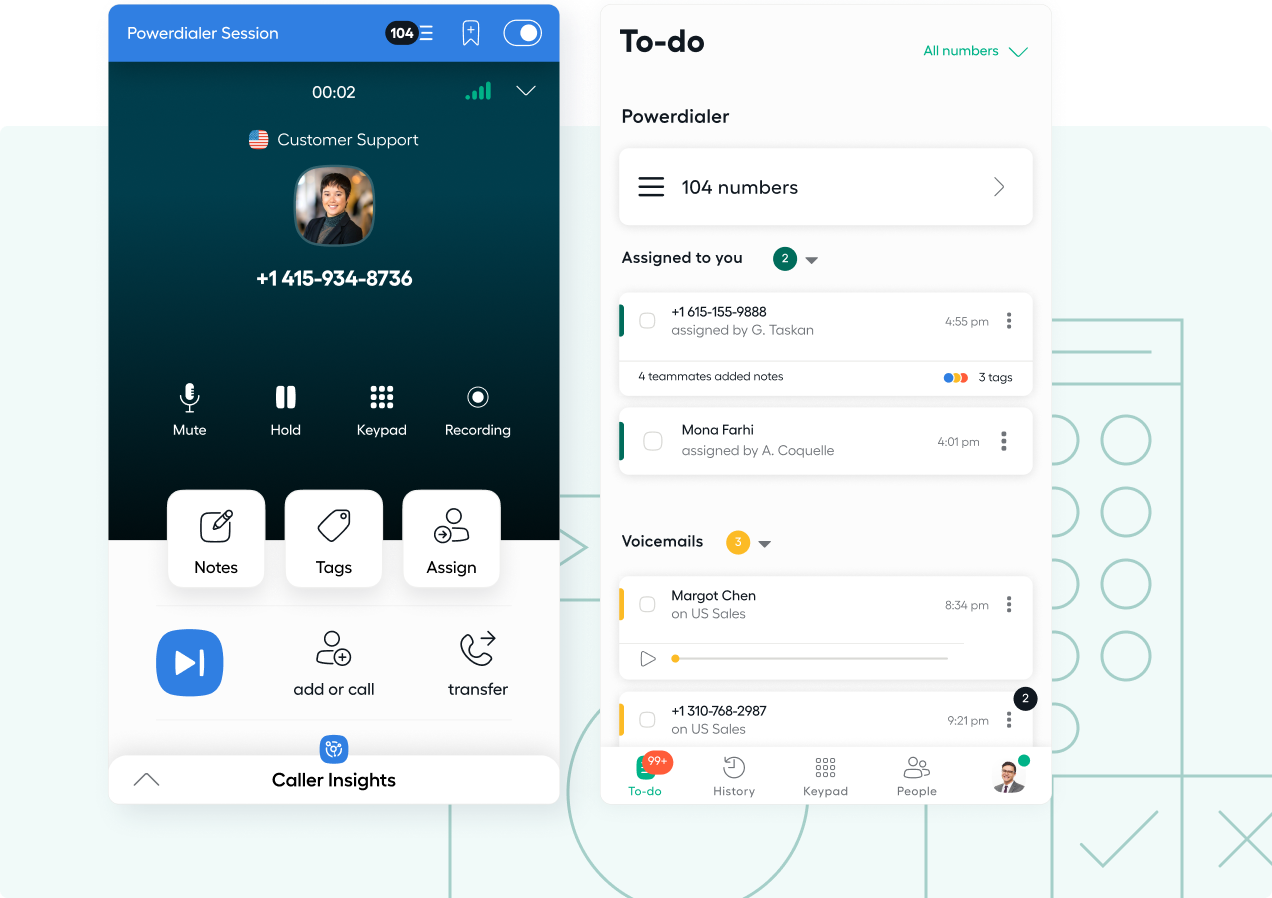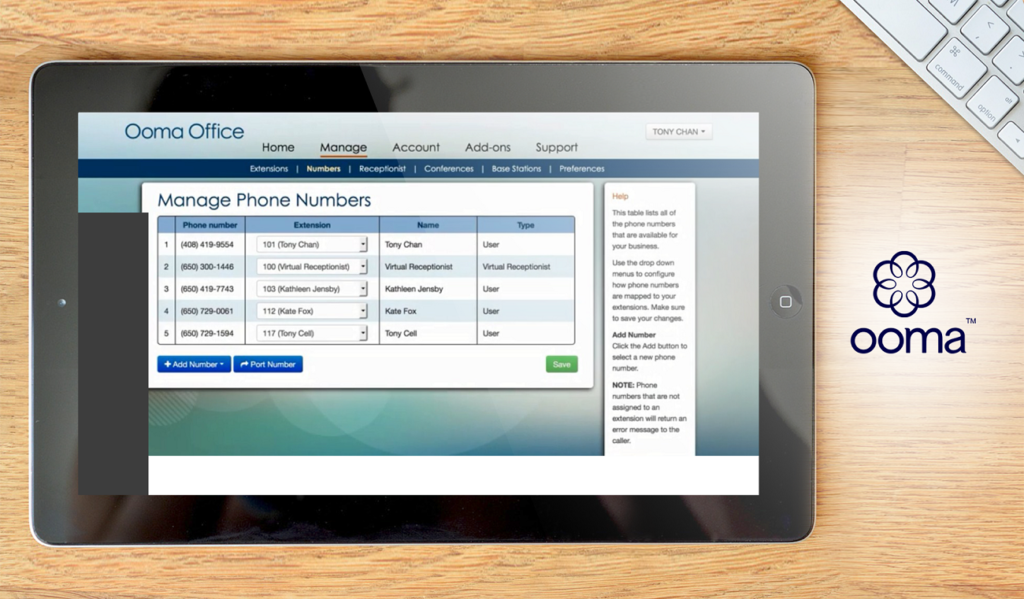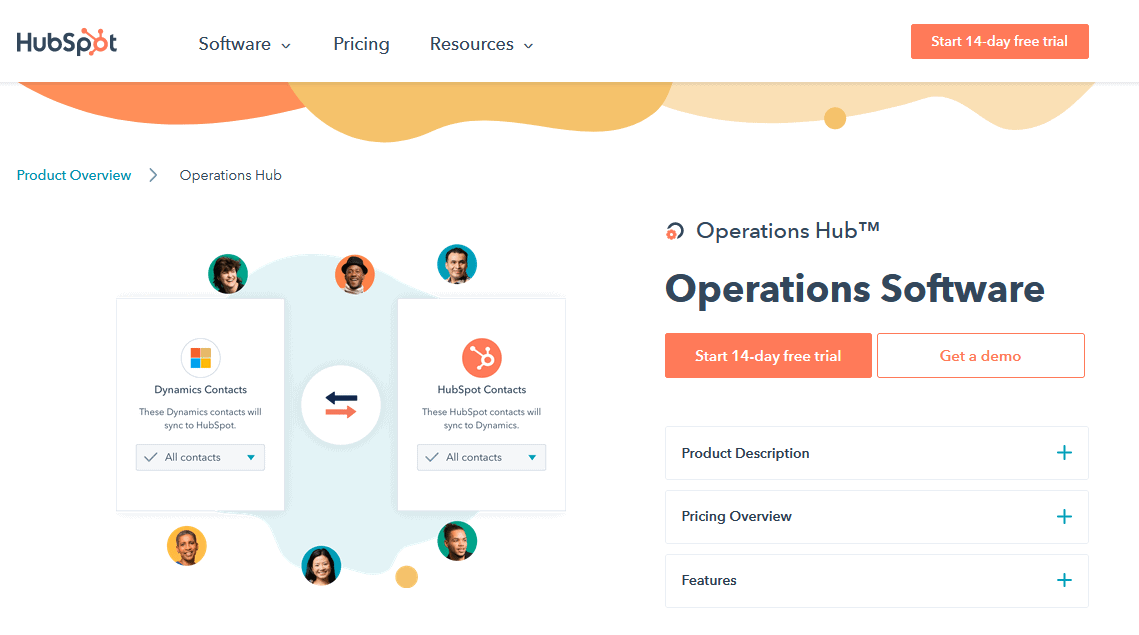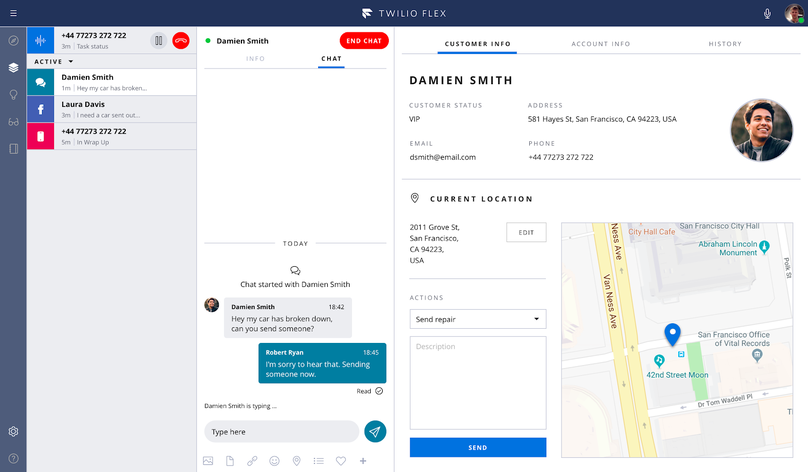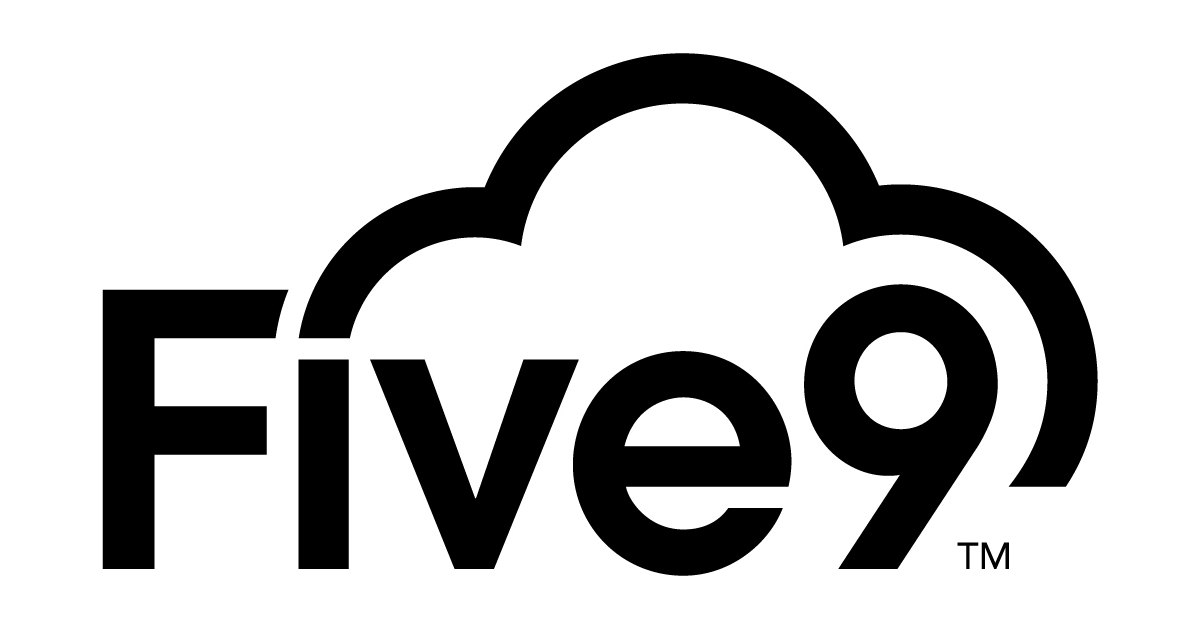Call center software is a digital solution designed to manage and streamline inbound and outbound communications for businesses. It enables companies especially small to medium-sized enterprises (SMEs) to deliver enterprise-level customer service without the need for expensive infrastructure.
Thanks to advancements in cloud-based phone systems, businesses can now run efficient and scalable call centers with just an internet connection and smart software tools. This makes cloud call center software a cost-effective, flexible, and highly accessible solution.
Why Use Call Center Software?
Traditionally, setting up a call center required major investments in hardware, space, and staff. Today, cloud call center solutions eliminate those barriers, offering:
-
Ease of setup — No complex hardware installation
-
Cost savings — Lower upfront and maintenance costs
-
Remote capabilities — Ideal for distributed or hybrid teams
-
Integration — Seamlessly connects with your business phone system, CRM, and help desk platforms
Key Features of Modern Call Center Software
To get the most out of your investment, look for these essential call center features:
Feature |
Description |
|---|---|
IVR (Interactive Voice Response) |
Guides callers through automated menus |
Call Routing & Queuing |
Directs calls to the right agent based on skills or availability |
Omnichannel Support |
Unifies voice, email, live chat, and social media |
Call Recording & Monitoring |
Helps with quality control and training |
Real-Time Analytics |
Tracks KPIs like call volume, response times, and resolution rates |
CRM Integration |
Syncs customer info for personalized support |
Remote Agent Support |
Enables agents to work from anywhere |
Benefits of Call Center Software for Small Businesses
Implementing call center software brings measurable benefits to growing businesses:
-
Boosts productivity by automating repetitive tasks
-
Improves customer experience through faster response times
-
Supports scalability as your team and customer base grow
-
Enhances compliance and security with call logging and data protection features
-
Delivers actionable insights via built-in analytics dashboards
List of Best 12 Call Center Software:
Look at some of the top call center applications you can pick for your company.
1. Freshcaller:
Freshcaller is a cloud-based, all-purpose call center software that is easy to use. A single control panel may handle everything, and calls can be placed with only a click.
It’s an obvious choice for small organizations because it doesn’t require hardware. Still, it has many capabilities, including call masking, routing, recording/monitoring, forwarding, and conferencing. Local numbers must still be purchased through the Freshcaller management inventory even though it permits worldwide use.
Overall, it’s a solid all-purpose platform for integrated call needs, and being web-based makes it both easily accessible and reasonably priced. Except for call charges, the starting level is free to use for an infinite number of agents. Commercial versions offer more sophisticated capabilities, including call routing beyond business hours, metrics, service-level monitoring, and omnichannel routing.
2. Nextiva:
The top virtual business phone number provider is Nextiva. Since Nextiva is entirely cloud-based, it is the ideal solution for remote teams. To answer all incoming calls, your support staff only needs to connect to the Nextiva desktop or mobile application. Additionally, it comes with full help desk software. It enables you to communicate with customers across various channels, including social media, audio, SMS, live chat, and video.
You can also obtain screen popups with the Nextiva contact center system that are customized to reflect your brand. When clients contact you, an IVR option also supports speech.
IVR can be enhanced by automating repetitive processes. Doing this may effectively handle high call volumes while saving money on hiring more agents. Additionally, it enables customer service representatives to concentrate on taking crucial calls while IVR addresses mundane issues.
Along with economical cell phone rates, Nextiva also provides extra features like a toll-free number, voicemail to email functionality, call recording, HD video conferencing, auto-attendant, and more.
3. ZenDesk:
ZenDesk has created a cloud contact center around customer relations management (CRM), unlike many cloud call-center providers who incorporate it into their offering. ZenDesk Talk, a slick and seamless solution that genuinely puts the client first, is the outcome.
Since the client details and history are delivered when the call is answered, customer care teams may now offer telephone support from where they handle other channels. By putting everything together, we hope to increase processes and efficiency. But in addition to calls, Zendesk Talk now features built-in SMS, and texts are immediately associated with open tickets, making it simple to keep track of correspondence.
All the features you would typically anticipate from a call center solution include call recording, IVR, routing, and real-time monitoring. Its cloud-based architecture makes setup quick, and analytics enable tracking and monitoring KPIs.
4. RingCentral:
RingCentral can assist you in setting up a call center without shelling out a tonne of cash or waiting months before you can utilize the phones. You can support any channel, but RingCentral offers voice at a reasonable price if that’s all you need. It’s an easy upgrade if you want to add tracks in the future.
RingCentral runs on almost any technology and includes many pre-built connectors with well-known programs. By doing this, disruption and unexpected costs will be reduced.
You can integrate RingCentral with your CRM, ERP, or marketing automation program. Without having to construct the entire integration yourself, provide every employee access to vital consumer information and practical tools. It’s a fantastic choice for people who operate remotely or from home. Since everyone is already signed into RingCentral, your business won’t have to worry about keeping a firewall or setting up VPNs for mobile workers.
Simply put, your team has much less to worry about when using RingCentral. Yes, setting up your CRM will take some time, but many of the hassles associated with running a traditional call center are now off your plate.
Learning is also quite simple for folks. To set up a phone tree, you don’t need to be a telecommunications expert.
More than 40 powerful features, including phone queuing, intelligent routing, and workforce management tools, are available in the RingCentral Contact Center. Administrative and management services like analytics, call recording, and surveys will also be helpful to you.
RingCentral is dependable, safe, and secure. Thanks to the software, your agents may work from wherever, which has a 99.99 percent uptime guarantee.
5. Cloudtalk:
Cloudtalk provides affordable phone center services that are ready for remote access. Cloudtalk powers over 2,500 call centers and companies like Fujitsu, Mercedes-Benz, Booksy, DHL, and others rely on them. So if you utilize them, you’ll be in excellent company.
They are unique in that they let you manage virtual call centers from anywhere in the world. They use cloud technology, as the name implies, to provide you with a secure calling experience.
The user-friendly platform of Cloudtalk also features a great dashboard that provides information about your consumer while their call awaits you. Determine their needs before you even interact with them.
The Smart IVR on Cloudtalk is a critical function. The system uses an interactive voice response to direct calls to the appropriate parties. Along with mapping out the client path, you can select your preferred languages using their drag-and-drop call flow builder.
6. DialerAI:
With operations relating to living call transfer, interactive voice response (IVR), and voice broadcasting, organizations of all sizes can benefit from DialerAI, a cloud-based and on-premise predictive dialer software. Concurrent calling, voicemail recognition, text-to-speech conversion, and campaign analytics are some of its primary features.
The program aids users in creating phone surveys and collecting responses using multi-level IVR technology or recorded messages. The system enables marketing teams to develop campaigns, play pre-recorded commercials, and auto-dial leads. Agents may also manage call volumes and identify problematic or silent calls thanks to the technology.
Managers may assess call performance, determine the number of abandoned calls, and instantly produce reports using the dashboard with DialerAI. Support is offered by email, phone, chat, and documentation, and the solution is accessible through a monthly subscription.
7. Aircall:
A well-liked virtual call center system called Aircall promises that setting it up is as easy as handling your email. Both software firms and e-commerce enterprises use Aircall to implement fundamental call center features like call routing and IVR and more sophisticated ones like Power Dialing and CRM connections. Aircall can be used for automation creation, call data analysis, and tool integration.
The speed and effectiveness of the onboarding procedure are recurring subjects in reviews unfavorable to Aircall. The support personnel of Aircall as “hands-off” and “slow” to several G2 reviews. The complimentary comments emphasized how simple Aircall uses and how well it integrates.
Aircall’s vertical call center plans include unlimited domestic and international calling. They provide a 7-day free trial, and their monthly plans start at $30 for each user.
8. Ooma:
For companies of all sizes, Ooma offers an all-inclusive virtual phone solution. Ooma has a variety of services to keep your remote staff and customers connected, regardless of whether you are the owner of a startup, small business, or large corporation.
You can create a cloud contact center with Ooma and offer first-rate customer service easily. It provides intelligent call routing functionality and reduces long call queues by assisting clients in connecting with the appropriate agent without going through time-consuming or duplicate stages.
Additionally, you can design unique call flows for your support staff. You can quickly create a call sequence using the service’s drag and drop call flow designer.
In addition, Ooma has features like a multi-level IVR and call distribution that is automatic and based on caller information, business hours, and agent expertise. With intelligent reconnect, you can connect callers to the appropriate agent by automatically clicking them to the person they were chatting to before the conversation dropped.
You can track your customer service performance with Ooma. It falls short of Nextiva’s 45 distinct reporting capabilities and reports for gauging the effectiveness of your VoIP call center, though. According to the experts, Ooma is an attractive option for small to medium-sized enterprises wishing to add a call center solution.
9. Atos:
An on-premises or hosted cloud solution and an on-demand cloud center are the two leading solutions offered by Atos Unify. Companies with significant demand peaks and valleys can avoid using the on-demand option to maintain made to work with up to 100 concurrent agents at a single site. Enterprise offers up to 1500 concurrent agents per system and 7500 agents per cluster, and it can serve a single or several sites. IVR customization, chatbot integrations, and a variety of speech platforms are just a few more features available in Enterprise. One drawback is that there isn’t a size option, but it’s a complete package at the large end.
They have a cloud-native on-demand cloud contact center. RESTful APIs, Partner AI Chatbots, My Agent eXperience (MAX), and other new features and products are consistently being added.
10. Hubspot:
Considered a CRM solution. Makes it a superb all-in-one piece of software to employ in your contact center. With click-to-call features and the ability to integrate CRM data to set up a daily call queue and prioritize calls, it is especially well suited for sales teams. Live chat and email scheduling are other options.
With ServiceHub, you can turn inquiries into tickets and organize them correctly. It also features a help desk with automation and reporting. While both are less traditional than many others on our list, they are still worth trying if you require a solution specifically for sales or service because they come with free tools.
11. Twilio Flex:
Because Twilio Flex can be customized entirely, it’s ideal for anyone who needs complete control over their contact center. It can integrate with other programs, and you can utilize APIs to get data when you need it from other sources. You can include your measurements, keep track of your KPIs, and make your reports. A single interface enables SMS, phone, WhatsApp, Facebook Messenger, LINE, and WebChat.
Although the customization is a big plus, smaller organizations could find it overly complicated and not worth the $1/active user hour or $150/named user per month price tag.
12. Five9:
Let’s you manage sales and customer service from a single dashboard. All the standard functions. Diverted to meet the increased burden in the event of a spike in inbound calls. This involves several settings and features that are all geared toward increasing effectiveness.
In case that wasn’t sufficient, this solution incorporates several effective CRM software systems, including Salesforce, Zendesk, and Oracle. The cloud-based nature of Five9 makes it accessible without telecommunications equipment. Pricing is individualized for demands ranging from small business to corporate needs.
Final Thoughts: Why Call Center Software Is a Smart Investment
Modern call center software for small businesses bridges the gap between limited resources and high customer expectations. Whether you’re supporting 5 agents or 50, the right solution can help you reduce costs, enhance communication, and build customer loyalty all while maintaining a professional, scalable operation.
Frequently Asked Questions (FAQs)
Q1: What is the best call center software for small businesses?
A: Top providers include Freshdesk Contact Center, CloudTalk, RingCentral, and Five9, depending on your specific needs and budget.
Q2: Can I use call center software with my existing phone system?
A: Yes! Most modern solutions integrate seamlessly with VoIP business phone systems, CRMs, and other tools.
Q3: Is cloud call center software secure?
A: Absolutely. Most providers offer end-to-end encryption, compliance certifications (GDPR, HIPAA), and role-based access controls.

